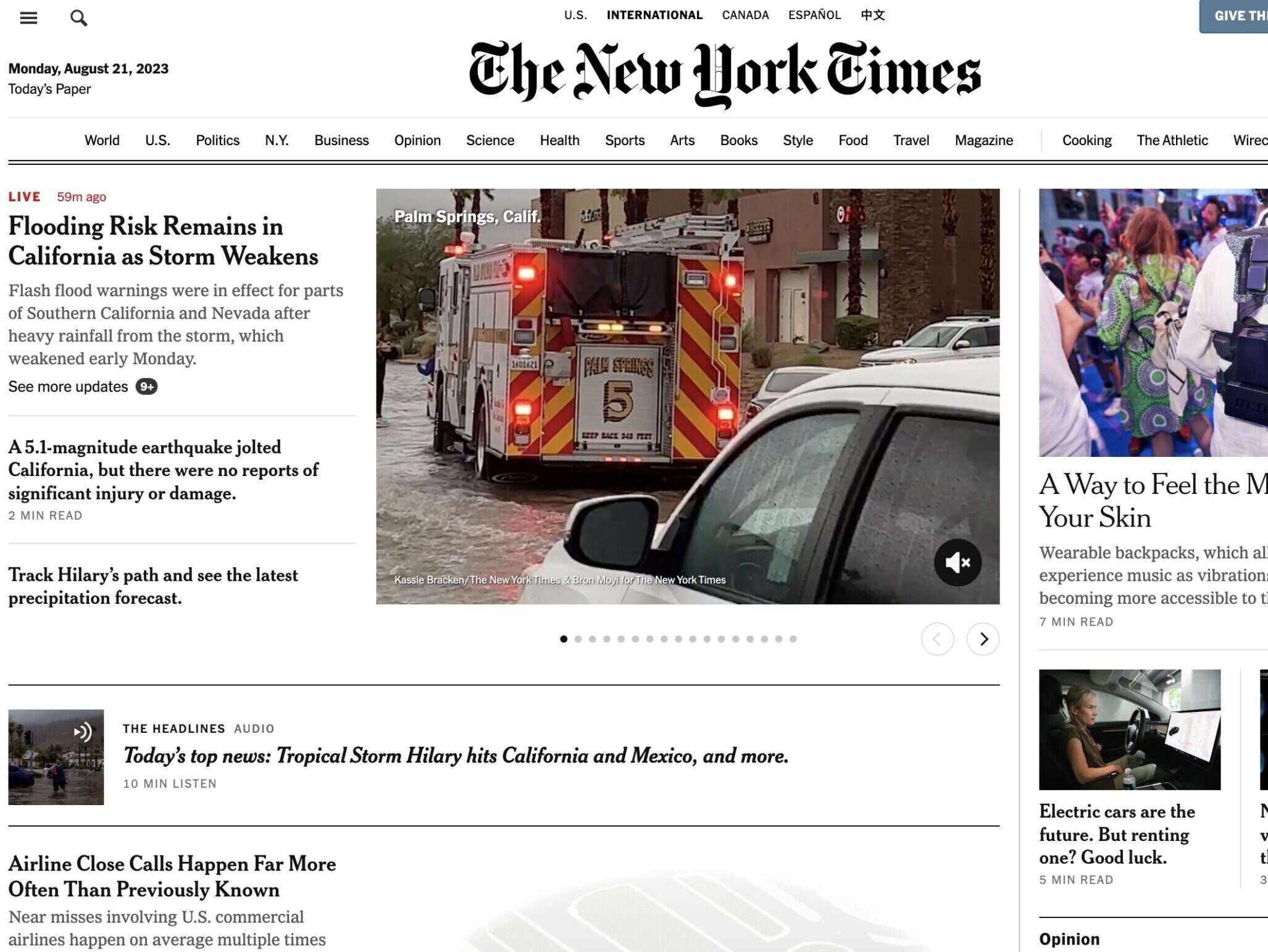What Does News Websites Mean?
What Does News Websites Mean?
Blog Article
The Ultimate Guide To News Websites
Table of ContentsNews Websites Things To Know Before You BuyNews Websites for BeginnersNews Websites for Dummies4 Easy Facts About News Websites ShownThe Buzz on News Websites
It was down in the UK and Brazil but up some other countries, such as Greece, Bulgaria, and Poland (News Websites). This year, for the very first time, we inquired about the various ways that individuals avoid the information and discovered that around half of avoiders (53%) were trying to do so in a broad-brush or periodic method for example, by switching off the radio when the information came on, or by scrolling past the information in social media sitesYou stated that you try to actively avoid information.

I'm possibly selecting to learn more light-hearted stories than I used to at the minute. M, 51, UK Switching my back on news is the only way I feel I can deal in some cases. I have to purposely make the initiative to avert for the sake of my very own mental health.
Some Of News Websites
Discerning avoidance of Ukraine information was greatest in a lot of the nations closest to the conflict, strengthening searchings for from our additional survey in 2014, right after the war had actually begun. Our data might not recommend a lack of rate of interest in Ukraine from neighboring countries yet rather a wish to take care of time or protect mental wellness from the really real horrors of battle.
Contrasting Finland with a politically polarised country such as the United States (see next graph) that is much less influenced by the war, we find an extremely various pattern of subject evasion. In the United States, we find that consumers are more probable to stay clear of subjects such as national politics and social justice, where discussions over issues such as gender, sexuality, and race have ended up being extremely politicised.
American national politics are rather toxic these days. I find in some cases that I have to detach from tales that simply make me upset. F, 61, USA For some individuals, bitter and disruptive political discussions are a factor to transform off information completely, yet for some political upholders, evasion is usually about blocking out perspectives you don't wish to listen to.

News Websites Things To Know Before You Get This
Some are looking to make information much more available for hard-to-reach teams, expanding the news schedule, commissioning even more inspiring or favorable information, or embracing positive or services journalism that offer people a feeling of hope or personal agency. In our study this year, we asked respondents regarding their rate of interest in these various techniques.
This discusses why stories like Ukraine or nationwide politics carry out well with information regulars however can at the same time transform much less interested individuals away (News Websites). Selective avoiders are much less thinking about all sorts of news than non-avoiders yet in family member terms they do seem to be more curious about positive or solutions-based news

Excitement About News Websites
2023). This may hold true in the moment, yet with time it appears to be leaving lots of people vacant and much less pleased, which may be threatening our link with and count on the news. Throughout markets, general count on in information (40%) and rely on the sources individuals use themselves (46%) are down by an even more 2 percentage factors this year.
Undoubtedly, through the rear-view mirror, the COVID-19 trust fund bump is clearly noticeable in the complying with chart, though the instructions of travel after that has been blended. Sometimes (e.g. Finland), the count on rise has actually been preserved, while in others the upturn looks even more like a blip in a tale of continued lasting decline.
Several of the greatest reported degrees of media criticism are found in nations with highest degree of question, such as Greece, the Philippines, the United States, France, and the UK. The most affordable levels of media objection are commonly in those with higher degrees of count on, such as Finland, Norway, Denmark, and Japan.
5 Simple Techniques For News Websites
This year we asked participants about their preferences for text, sound and video clip when consuming news online. Generally, we find that the bulk still prefer to read the news (57%), as opposed to watch (30%) or pay attention to it (13%), but more youthful individuals (under-35s) are most likely to pay attention (17%) than older teams.
Behind the standards we discover considerable and unexpected country differences. In markets with a solid analysis practice, such as Finland and the UK, around eight in ten still prefer to read on-line news, yet in India and Thailand, his comment is here around 4 in 10 (40%) say they favor to see information online, and in the Philippines i was reading this that proportion is over fifty percent (52%).
Report this page